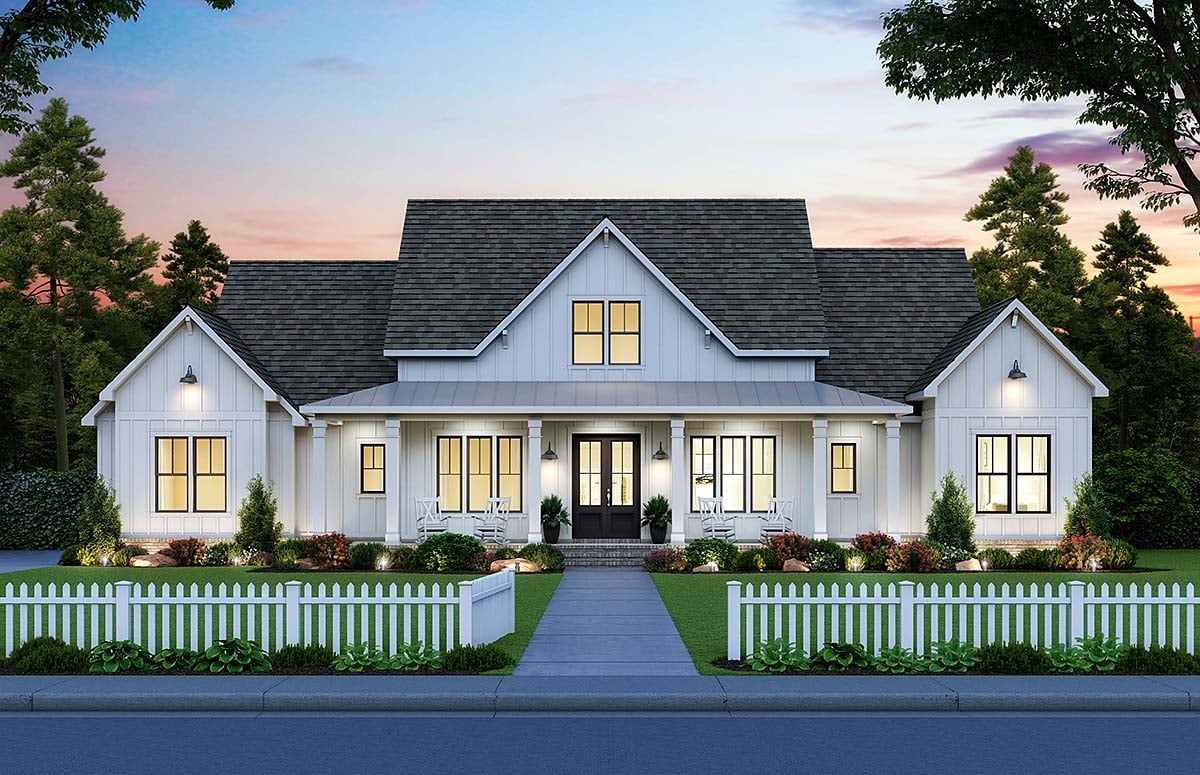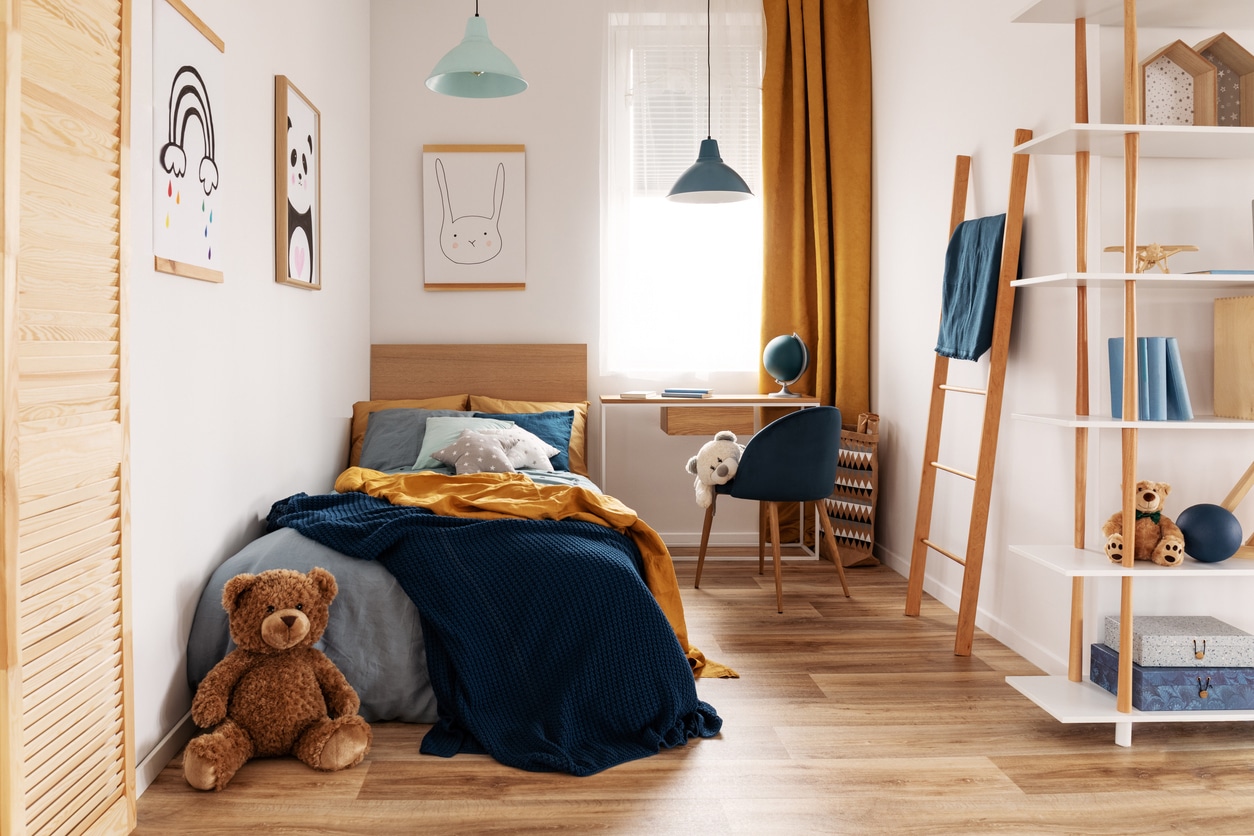Are you on the hunt for a new home and torn between choosing a three-bedroom or four-bedroom property? This decision isn’t just about the number of rooms; it’s about how you envision your lifestyle, how you plan for the future, and how you value your investment.
Each option offers its own unique benefits and potential challenges. But what truly makes one more valuable than the other for you and your family? Understanding this could save you time, money, and even some future headaches. Stick around as we delve into the pros and cons of three-bedroom versus four-bedroom homes, helping you make an informed decision that aligns perfectly with your needs and dreams.

Credit: mscenterprisesllc.com
Market Trends
Understanding market trends is essential when comparing three and four-bedroom homes. These trends impact property values and buyer preferences. Real estate markets change over time. Knowing the current trends helps in making informed decisions.
Understanding Current Demand
Three-bedroom homes are often sought after by small families. They offer just enough space without overwhelming maintenance. Four-bedroom homes attract larger families. The extra room provides flexibility for a home office or guest room. Demand fluctuates based on economic conditions and population growth. In recent years, both types have seen varying levels of popularity.
Price Appreciation Over Time
Property values for both three and four-bedroom homes have appreciated. However, the rate can differ. Three-bedroom homes often see steady appreciation. They are easier to sell in a balanced market. Four-bedroom homes might appreciate faster in growing suburbs. The extra space is a key selling point.
Geographical Influences
Location plays a significant role in property trends. Urban areas may see higher demand for three-bedroom homes. Space is limited, so smaller homes are more practical. Suburban or rural areas might favor four-bedroom homes. Families value the extra space and privacy available.
Impact Of Economic Factors
Economic conditions greatly influence housing trends. During economic downturns, three-bedroom homes may hold their value better. They are more affordable for buyers. In contrast, a booming economy might boost demand for four-bedroom homes. People have more purchasing power and seek larger properties.
Space And Layout
Choosing between three and four bedrooms impacts home value. More bedrooms offer space for families. A three-bedroom home is often more affordable, while four bedrooms provide extra flexibility for guests or office space.
When you’re deciding between a three-bedroom and a four-bedroom home, space and layout are pivotal aspects to consider. Your lifestyle and future plans should guide you in making this choice. Do you need extra space for a growing family or perhaps a dedicated work-from-home area? Understanding how each option uses space can help you visualize your ideal living situation.Living Space Utilization
Think about how you currently use your living space. A three-bedroom home might suit you if you prefer cozy settings and less maintenance. It often allows for efficient use of space, focusing on a comfortable living room and dining area. In contrast, a four-bedroom home can provide more room for personalization. You might enjoy the luxury of a guest room or a dedicated playroom for the kids. Extra bedrooms can be a boon, providing unique options for family and guests.Flexibility In Floor Plans
The flexibility of floor plans in both three and four-bedroom homes can dramatically affect your lifestyle. With three bedrooms, you might find fewer layout options, but it can encourage creativity in maximizing space. Perhaps you turn the smallest bedroom into a cozy home office or a vibrant art studio. Meanwhile, four-bedroom homes often offer more diverse floor plans. You have the freedom to design your spaces with unique themes or purposes. Imagine creating a dedicated fitness room or a serene meditation space. Have you considered how your needs might change in five years? The flexibility in floor plans can cater to evolving family dynamics or hobbies, keeping your home adaptable to life’s shifts. Ultimately, the decision comes down to how you envision your living space. Will a three-bedroom fulfill your immediate needs, or does a four-bedroom offer the versatility you crave?Cost Implications
Choosing between a three-bedroom and a four-bedroom home involves costs. Understanding these cost implications helps in making informed decisions. Let’s explore the purchase price differences and long-term financial impact.
Purchase Price Differences
Three-bedroom homes usually cost less than four-bedroom homes. The price gap varies based on location and market trends. In some areas, the difference might be minimal. In others, it could be significant. A smaller home generally has lower initial costs. This means a smaller down payment and mortgage. For buyers on a budget, this is appealing. Yet, a four-bedroom home might offer more space for a growing family. Consider future needs when assessing the price difference.
Long-term Financial Impact
Owning a larger home impacts finances over time. A four-bedroom home often has higher utility and maintenance costs. More rooms can mean higher heating and cooling expenses. Property taxes might also be higher. These costs add up over the years. But, a larger home can appreciate more in value. This might offset the higher expenses. A three-bedroom home could be more manageable financially. Lower maintenance costs make it easier to maintain. Weighing these factors is crucial in your decision-making process.

Credit: www.familyhomeplans.com
Family Dynamics
Choosing between a three-bedroom and a four-bedroom home can significantly impact your family’s dynamics. The number of bedrooms you choose will influence how you interact with each other daily. It can affect your comfort, privacy, and even the relationships within your family. Let’s explore how the number of bedrooms can cater to your unique family needs.
Growing Family Needs
As your family grows, so do the demands for space. A three-bedroom home might feel cozy and manageable initially. However, if you plan to expand your family, the extra bedroom can become a necessity rather than a luxury.
Think about the morning rush. With more bedrooms, you have fewer arguments about bathroom time and closet space. Everyone can prepare for the day without feeling cramped.
Consider your family’s future. Would you prefer to move again or have a home that adjusts to your evolving family dynamics?
Guest Accommodation
Hosting guests can be delightful, but it comes with challenges. A three-bedroom home may limit your ability to offer a comfortable stay. You might end up sacrificing your own space or cramming guests into a shared room.
With a four-bedroom home, you can dedicate a room to guests. This means more privacy for them and less disruption for you. Your guests will appreciate the comfort, and you can enjoy the visit without feeling overwhelmed.
Reflect on your social life. How often do you host friends or family? Is guest accommodation a priority for you?
Consider how these factors align with your lifestyle and future plans. The right number of bedrooms can make a significant difference in your family’s happiness and convenience.
Resale Value
Three-bedroom homes often offer strong resale value due to their balance of space and affordability. Four-bedroom homes provide higher value, appealing to larger families and those seeking extra space. Each option has unique benefits, catering to different buyer needs and preferences.
When considering the resale value of a home, the number of bedrooms can make a significant difference. People often wonder whether a three-bedroom or a four-bedroom house offers better long-term returns. The answer isn’t straightforward, but understanding market dynamics can help you make an informed decision.Market Demand
Market demand plays a crucial role in determining resale value. In many urban areas, three-bedroom homes are highly sought after due to their affordability and adequate space for small families. However, in suburban areas where larger families might reside, four-bedroom homes could be in greater demand. If you live in an area popular with growing families, a four-bedroom home might fetch a higher price due to its extra space. On the other hand, a three-bedroom might sell faster in a city where smaller families or young professionals are common. Consider who your potential buyers might be.Future Appreciation Potential
The future appreciation potential of a home also hinges on the number of bedrooms. A three-bedroom home in a developing neighborhood may appreciate rapidly as more amenities are added. But a four-bedroom home in an established area could maintain a steady, reliable increase in value over time. Think about how the neighborhood might change. Will there be new schools, parks, or shopping centers that could boost property values? A larger home might benefit more from these improvements, but a smaller home could still see a significant value increase if located strategically. Ultimately, consider your long-term goals. Are you looking for quick resale or a solid investment over several years? Each has its benefits, and understanding the local market can guide your choice.Investment Potential
When considering the investment potential of a three-bedroom versus a four-bedroom home, it’s crucial to weigh the benefits each option offers. Both can be lucrative, but which is better for you? Let’s explore how these choices can impact your financial future.
Rental Income Opportunities
Owning a rental property can be a steady income stream. A four-bedroom home often attracts larger families or groups, potentially leading to higher rental rates. Imagine the demand for extra space in a bustling city.
On the other hand, three-bedroom homes might appeal to smaller families or young professionals. They typically have lower vacancy rates due to widespread demand. What’s your target market?
Consider your local real estate market. If larger families are flocking to your area, a four-bedroom might be your golden ticket. However, if compact living is trending, three-bedrooms could be your safer bet.
Property Appreciation
Property appreciation is another key factor in your investment decision. Historically, larger homes in desirable neighborhoods tend to appreciate more. Think about the long-term growth potential of a four-bedroom.
However, don’t underestimate the power of a three-bedroom home. They often sell faster due to their appeal to first-time buyers and smaller families. Could this quicker turnover work in your favor?
Look at recent market trends. Is there a surge in demand for larger spaces? Or is there a shift towards more affordable, manageable living arrangements? Your answer might guide your investment choice.
Choosing between a three-bedroom and a four-bedroom home isn’t just about the immediate payoff. It’s about forecasting future trends and aligning them with your investment goals. What does your financial future look like?
Lifestyle Considerations
Choosing between three and four bedrooms impacts lifestyle and property value. More bedrooms provide flexibility for growing families or guests. Consider future needs and resale value when deciding.
Choosing between a three-bedroom and a four-bedroom home is more than just a decision about space. It’s about the life you envision for yourself and your family. Your lifestyle can significantly influence this choice. Whether you prioritize community, comfort, or future plans, each option offers unique benefits.Neighborhood Amenities
The amenities in your neighborhood can greatly affect your lifestyle. A four-bedroom home might be situated in a neighborhood with top-tier schools, spacious parks, and vibrant community centers. These are excellent for families who enjoy community activities and value education. On the other hand, a three-bedroom home may be in a more urban setting, close to cafes, gyms, and public transport. This is ideal if you love the hustle and bustle of city life. Consider what amenities align with your daily routine and long-term goals.Quality Of Life
The number of bedrooms can also impact your quality of life. A four-bedroom home provides more space for privacy, a home office, or a guest room. This can enhance your living experience, especially if you have a growing family or frequently host visitors. A three-bedroom home, though smaller, often means less maintenance and lower utility costs. This can lead to a simpler, stress-free lifestyle. You might find that the reduced financial burden allows you more freedom to travel or pursue hobbies. Think about what kind of lifestyle you want to lead. Do you prefer the tranquility of a spacious home, or the convenience and simplicity of a smaller one? Consider these factors carefully. They can greatly influence your happiness and satisfaction in your new home.
Credit: realestateagentpdx.com
Frequently Asked Questions
What Factors Affect Three Vs Four Bedroom Home Value?
Room count impacts price. Location, size, and amenities influence value too. More bedrooms offer flexibility for family needs.
Is A Four Bedroom Home Worth The Extra Cost?
It depends on your needs. More space suits bigger families. Future resale value may be higher with four bedrooms.
How Does Bedroom Count Affect Resale Value?
More bedrooms can increase resale value. Families often seek extra space. Consider future buyer preferences when choosing.
Are There Energy Costs Differences?
Yes, more rooms mean higher energy costs. Heating, cooling, and lighting expenses rise. Energy-efficient design can help.
Which Is Better For Rental Income Potential?
Four bedrooms may attract higher rent. Larger families or groups look for extra space. Consider rental market demand.
Conclusion
Choosing between a three-bedroom and four-bedroom home involves key considerations. Space needs, future plans, and budget play vital roles. A three-bedroom home offers cozy living with manageable costs. Ideal for small families or couples. On the other hand, a four-bedroom home provides extra room.
Perfect for growing families or those needing more space. Think about your lifestyle. Consider your future. These factors help in making the best choice. Reflect on your priorities. Your decision impacts both daily life and long-term satisfaction. Make an informed choice that suits your unique needs and aspirations.





